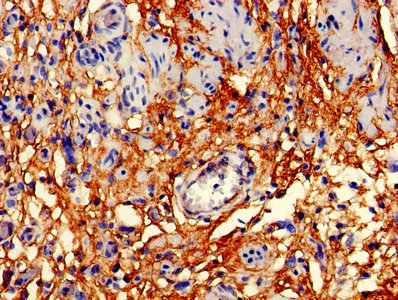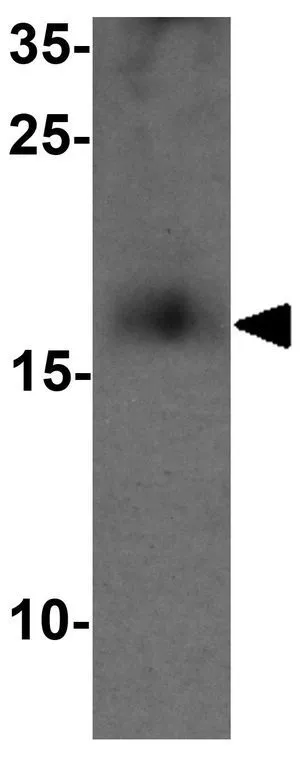![FACS analysis of HL-60 (positive, red) and SP2 (negative, blue) cells using GTX79946 CD59 antibody [MEM-43] (APC). FACS analysis of HL-60 (positive, red) and SP2 (negative, blue) cells using GTX79946 CD59 antibody [MEM-43] (APC).](https://www.genetex.com/upload/website/prouct_img/normal/GTX79946/GTX79946_20191025_AP_006_340_w_23061322_479.webp)
FACS analysis of HL-60 (positive, red) and SP2 (negative, blue) cells using GTX79946 CD59 antibody [MEM-43] (APC).
CD59 antibody [MEM-43] (APC)
GTX79946
ApplicationsFlow Cytometry
Product group Antibodies
ReactivityHuman
TargetCD59
Overview
- SupplierGeneTex
- Product NameCD59 antibody [MEM-43] (APC)
- Delivery Days Customer9
- Application Supplier NoteFACS: 10 microl reagent / 100 microl of whole blood or 106 cells in a suspension. *Optimal dilutions/concentrations should be determined by the researcher.Not tested in other applications.
- ApplicationsFlow Cytometry
- CertificationResearch Use Only
- ClonalityMonoclonal
- Clone IDMEM-43
- ConjugateAPC (Allophycocyanin)
- Gene ID966
- Target nameCD59
- Target descriptionCD59 molecule (CD59 blood group)
- Target synonyms16.3A5, 1F5, EJ16, EJ30, EL32, G344, HRF-20, HRF20, MAC-IP, MACIF, MEM43, MIC11, MIN1, MIN2, MIN3, MIRL, MSK21, p18-20, CD59 glycoprotein, 1F5 antigen, 20 kDa homologous restriction factor, CD59 antigen p18-20 (antigen identified by monoclonal antibodies 16.3A5, EJ16, EJ30, EL32 and G344), CD59 blood group antigen, CD59 molecule, complement regulatory protein, Ly-6-like protein, MEM43 antigen, T cell-activating protein, human leukocyte antigen MIC11, lymphocytic antigen CD59/MEM43, membrane attack complex (MAC) inhibition factor, membrane attack complex inhibition factor, membrane inhibitor of reactive lysis, protectin, surface anitgen recognized by monoclonal antibody 16.3A5
- HostMouse
- IsotypeIgG2a
- Protein IDP13987
- Protein NameCD59 glycoprotein
- Scientific DescriptionThis gene encodes a cell surface glycoprotein that regulates complement-mediated cell lysis, and it is involved in lymphocyte signal transduction. This protein is a potent inhibitor of the complement membrane attack complex, whereby it binds complement C8 and/or C9 during the assembly of this complex, thereby inhibiting the incorporation of multiple copies of C9 into the complex, which is necessary for osmolytic pore formation. This protein also plays a role in signal transduction pathways in the activation of T cells. Mutations in this gene cause CD59 deficiency, a disease resulting in hemolytic anemia and thrombosis, and which causes cerebral infarction. Multiple alternatively spliced transcript variants, which encode the same protein, have been identified for this gene. [provided by RefSeq, Jul 2008]
- ReactivityHuman
- Storage Instruction2°C to 8°C
- UNSPSC12352203
References
- Lee TC, Lee TH, Huang YH, et al. Comparison of surface markers between human and rabbit mesenchymal stem cells. PLoS One. 2014,9(11):e111390. doi: 10.1371/journal.pone.0111390Read this paper






